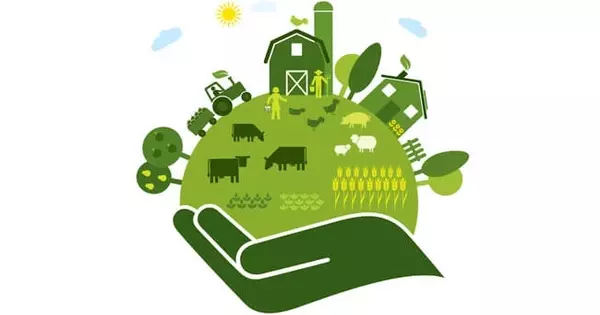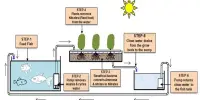Agroecology is a scientific discipline and a holistic approach to agriculture that tries to study and encourage the interactions in agricultural systems involving plants, animals, humans, and the environment. It blends ecological, biological, agronomic, and social science principles to develop sustainable and resilient farming systems.
Applying ecological ideas to agroecosystem management can lead to novel management approaches. A science, a movement, or an agricultural technique can all be referred to by the phrase. Agroecologists research a wide range of agroecosystems. Although some use the term specifically for alternative agriculture, the area of agroecology is not related with any one form of farming, whether organic, regenerative, integrated, or industrial, intensive or extensive.
Definition
The OECD defines agroecology as “the study of the relationship between agricultural crops and the environment.” Agroecology, according to Dalgaard et al., is the study of the interactions between plants, animals, humans, and the environment within agricultural systems. Francis et al. utilize the term in the same way, but believe it should be limited to food production.
Agroecology is a holistic strategy to reconciling agriculture and local people with natural processes for the benefit of both nature and humans.
Goal
Agroecology’s major purpose is to create and execute farming systems that are ecologically friendly, socially just, and commercially successful. It emphasizes the incorporation of natural processes and biodiversity into agricultural systems, with the goal of decreasing or eliminating reliance on synthetic inputs such as chemical fertilizers and pesticides.
Key principles of agroecology include:
- Biodiversity: Encouraging and preserving biodiversity in agricultural landscapes to enhance ecosystem resilience and promote natural pest control.
- Ecological Intensification: Focusing on improving overall system productivity through ecological processes rather than relying solely on external inputs.
- Soil Health: Promoting soil fertility and health through practices like composting, crop rotation, cover cropping, and minimal soil disturbance.
- Water Conservation: Efficiently managing water resources through techniques such as water harvesting, drip irrigation, and conservation practices to minimize water use and prevent pollution.
- Social Equity: Recognizing the importance of social and economic factors in agricultural systems, ensuring fair access to resources, knowledge, and decision-making processes for farmers and rural communities.
- Participatory Approaches: Involving farmers, scientists, and local communities in the co-creation of knowledge and the development of sustainable agricultural practices.
Agroecology is frequently contrasted with traditional industrial agriculture, which is primarily reliant on synthetic inputs, monocultures, and large-scale mechanization. Agroecological systems, on the other hand, prioritize the long-term sustainability of both the environment and the agricultural communities.














